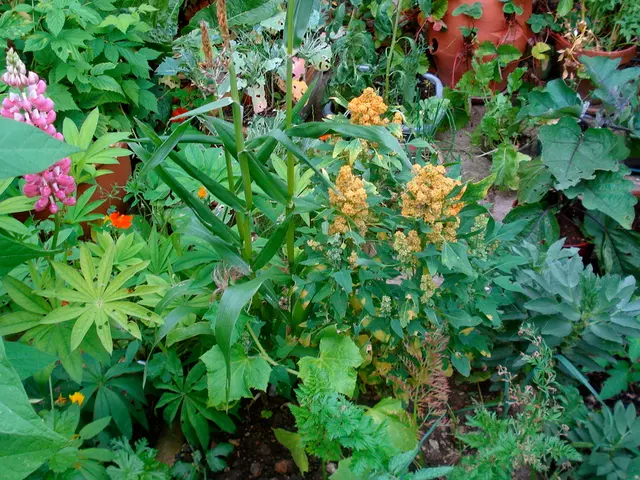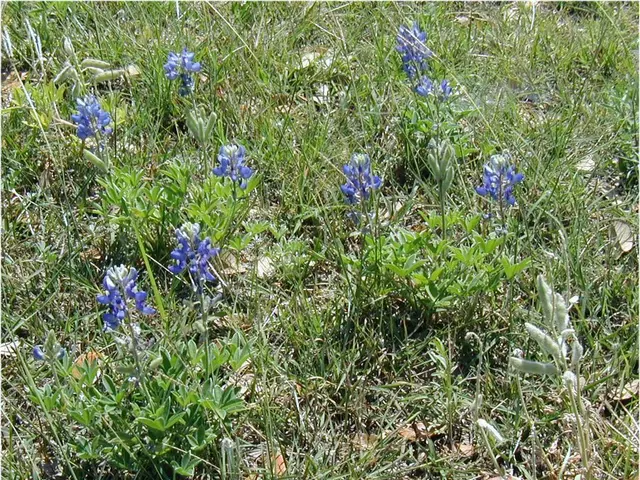Methods for Cultivating Long Crops Year-Round via Season Extension and Cold-Weather Cultivation
Feeling a bit green-thumbed, huh? Ever wondered how you can grow your crops longer each year and even keep some alive through winter? Well, buckle up because we're diving into the world of season extension and overwintering!
Simply put, season extension and overwintering are two methods gardeners use to grow food in the off-season, extending their gardening capabilities. Let's get into the nitty-gritty details so you can make the most of your garden whatever the weather!
Season Extension vs. Overwintering
First things first, let's clear up the jargon: what separates "season extension" from "overwintering"?
Season Extension
In a nutshell, season extension is about giving your crops more time to grow and reach maturity through protective measures like covers or shelters. For instance, cover summer crops like tomatoes, peppers, or basil with a warm blanket during cold snaps to elongate their season. And protect fall crops like broccoli from freezing temperatures by covering them as well to give them a bit more ripening time.
Overwintering
On the other hand, overwintering means letting cold-hardy crops halt their growth in autumn, waiting for them to resume growing again in late winter as temperatures rise and daylight increases. This technique, unlike season extension, means you're not counting on harvesting crops in late fall, but rather enjoying an early spring harvest.
An example of overwintering in a Zone 7b garden would be spinach: plant it in fall and let it establish in October and November. Its growth will slow almost to a halt when daylight hours dip below ten per day in November, but it will survive the winter and start growing again in late January. Harvest occurs in February and can continue until around May!
Which Crops Overwinter?
Obviously, the crops you can overwinter in your garden depend on your climate and other factors. But as a beginner, you'll learn more about what works by trying things out. In a typical Zone 7b garden, spinach, mustard greens, kale, arugula, lettuce, parsley, carrots, and more perennial herbs can usually overwinter without the need for extra protection.
Best Covers for Season Extension
So, you're thinking about covering your crops, but where do you even start? Here are some options:
- Floating Row Covers add warmth while allowing air and water penetration. Great for frost-sensitive plants like tomatoes, peppers, or basil, but remember that they block some light, so you might need to uncover your crops on warmer days.
- Frost Blankets provide more warmth than floating row covers and are excellent for colder climates. Like floating row covers, they still allow for air and rain penetration but block more light, of up to 50%. Use these when you're trying to keep crops from dying, especially if they don't require light to grow.
- Plastic Covers offer extra insulation. Use these on top of floating row covers if it's a very cold night, but remember that they don't allow for air or water penetration, so they need to be vented or removed the next day.
Don't Forget Microclimates!
Lastly, keep in mind that different areas of your property may have varying temperatures due to microclimates. The most common areas are with containers and near your home or structure. Containers can be up to a few zones cooler than what your normal zone is, so consider that when it comes to sensitive crops at the end of your season or the ability for a particular crop to overwinter. Plants near structures may also benefit from the warmth emitted by buildings, especially on the south or west side.
Till the Soil and Grow!
Understanding the basics of season extension and overwintering will help you explore ways to extend your growing season and enjoy fresh produce throughout the year, no matter the climate! Happy gardening!
Free Resources
Want to start enjoying the fruits (and veggies) of your labor? Check out these free resources to get you started!
Resources
- ACCESS THE FREE GUIDES NOW
- Planting zone calculator: https://planthardiness.aaa.com/
- Find appropriate cold-tolerant varieties for your garden: https://www.rareseeds.com/pages/hardiness-zones-and-growing-regions
- Learn about crop rotation to improve the health of your soil: https://extension.umd.edu/hgic/crop-rotation
- Get advice from other gardeners and learn from their experiences: https://www.gardenweb.com/
- Follow local garden centers and nurseries for plant recommendations and advice: https://twitter.com/search?q=garden%20center%20near%20me%20&src=typed_query&f=live
Suitable Crops for Overwintering in Zone 7b
- Brassicas: Kale, broccoli, cabbage, and Brussels sprouts are all excellent choices for overwintering in Zone 7b. They can tolerate cooler temperatures and light frosts.
- Leafy Greens: Spinach, lettuce, and Swiss chard can be grown in the fall and often continue growing through the winter months.
- Root Vegetables: Carrots, beets, and turnips can be planted in late summer or early fall and left in the ground for winter harvest.
- Alliums: Onions and garlic can be planted in the fall for an early spring harvest.
- Legumes: Winter peas and other legumes may be successfully grown if planted early enough in the fall.
In addition to gardening knowledge, expand your lifestyle by incorporating podcasts and printables related to the field. The 'Garden Podcast' offers insights on various gardening topics, while 'Garden Printables' provide practical tools like planting schedules and labels.
While tending your garden, don't forget to prioritize your health-and-wellness and fitness-and-exercise routines. Balancing these aspects promotes overall well-being and supports a productive gardening experience.
To maintain your energy levels, consider incorporating cooking practices that complement your gardening hobby. Cozy fall recipes made with fresh vegetables and herbs from your garden can be both delightful and nourishing.
As you delve deeper into the world of gardening, explore its intertwining connections with science. By understanding the biological processes that enable plants to grow, you'll have a deeper appreciation for your time in the home-and-garden.
Lastly, remember that a balanced diet is essential for proper nourishment. Between the food-and-drink you prepare with your garden's yield and essential nutrients from other sources, you'll foster a lifestyle that supports both your physical health and your green thumb. Happy gardening!







